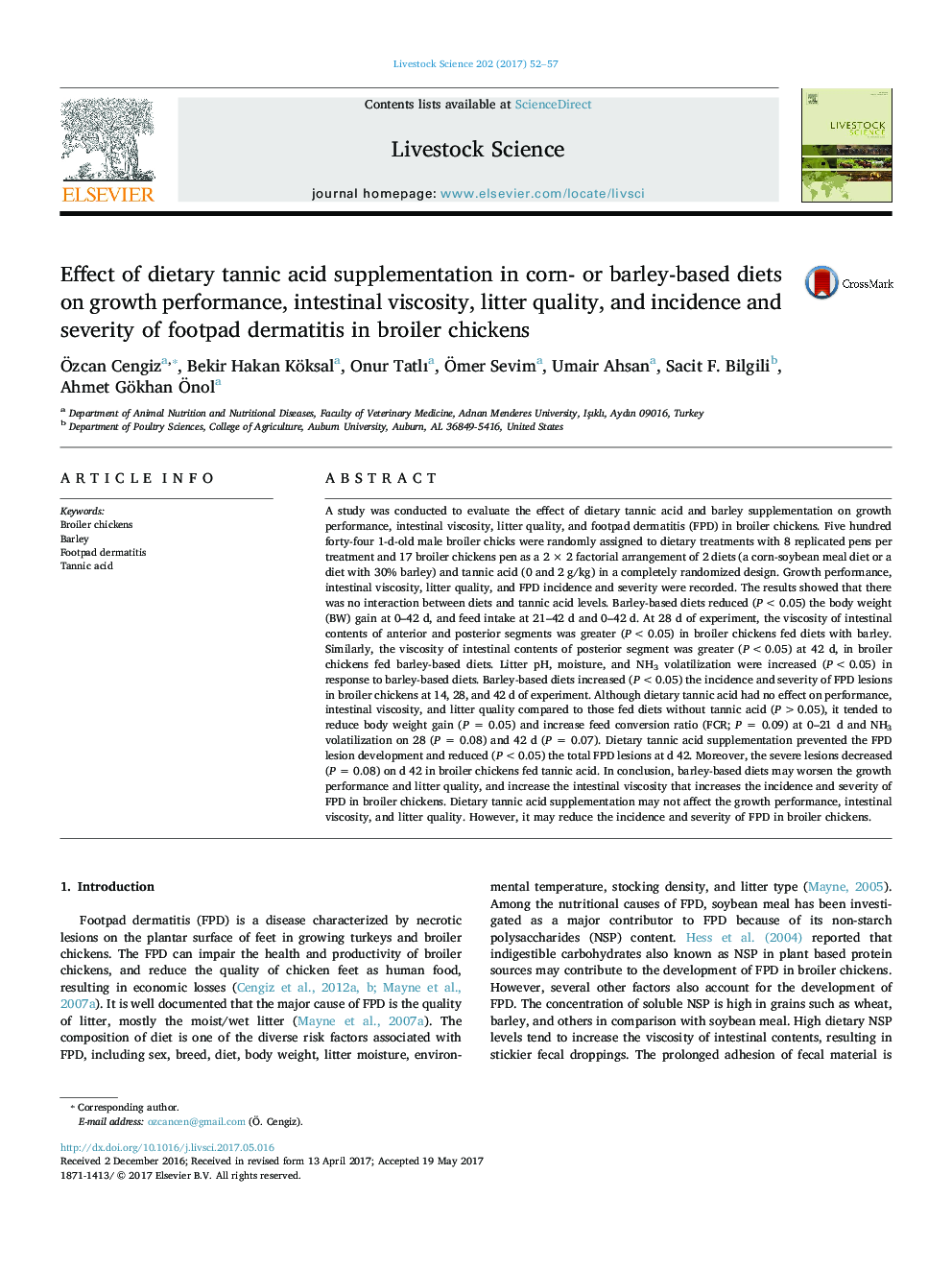| Article ID | Journal | Published Year | Pages | File Type |
|---|---|---|---|---|
| 5543102 | Livestock Science | 2017 | 6 Pages |
Abstract
A study was conducted to evaluate the effect of dietary tannic acid and barley supplementation on growth performance, intestinal viscosity, litter quality, and footpad dermatitis (FPD) in broiler chickens. Five hundred forty-four 1-d-old male broiler chicks were randomly assigned to dietary treatments with 8 replicated pens per treatment and 17 broiler chickens pen as a 2 Ã 2 factorial arrangement of 2 diets (a corn-soybean meal diet or a diet with 30% barley) and tannic acid (0 and 2Â g/kg) in a completely randomized design. Growth performance, intestinal viscosity, litter quality, and FPD incidence and severity were recorded. The results showed that there was no interaction between diets and tannic acid levels. Barley-based diets reduced (P < 0.05) the body weight (BW) gain at 0-42 d, and feed intake at 21-42 d and 0-42 d. At 28 d of experiment, the viscosity of intestinal contents of anterior and posterior segments was greater (P < 0.05) in broiler chickens fed diets with barley. Similarly, the viscosity of intestinal contents of posterior segment was greater (P < 0.05) at 42 d, in broiler chickens fed barley-based diets. Litter pH, moisture, and NH3 volatilization were increased (P < 0.05) in response to barley-based diets. Barley-based diets increased (P < 0.05) the incidence and severity of FPD lesions in broiler chickens at 14, 28, and 42 d of experiment. Although dietary tannic acid had no effect on performance, intestinal viscosity, and litter quality compared to those fed diets without tannic acid (P > 0.05), it tended to reduce body weight gain (P = 0.05) and increase feed conversion ratio (FCR; P = 0.09) at 0-21 d and NH3 volatilization on 28 (P = 0.08) and 42 d (P = 0.07). Dietary tannic acid supplementation prevented the FPD lesion development and reduced (P < 0.05) the total FPD lesions at d 42. Moreover, the severe lesions decreased (P = 0.08) on d 42 in broiler chickens fed tannic acid. In conclusion, barley-based diets may worsen the growth performance and litter quality, and increase the intestinal viscosity that increases the incidence and severity of FPD in broiler chickens. Dietary tannic acid supplementation may not affect the growth performance, intestinal viscosity, and litter quality. However, it may reduce the incidence and severity of FPD in broiler chickens.
Keywords
Related Topics
Life Sciences
Agricultural and Biological Sciences
Animal Science and Zoology
Authors
Ãzcan Cengiz, Bekir Hakan Köksal, Onur Tatlı, Ãmer Sevim, Umair Ahsan, Sacit F. Bilgili, Ahmet Gökhan Ãnol,
